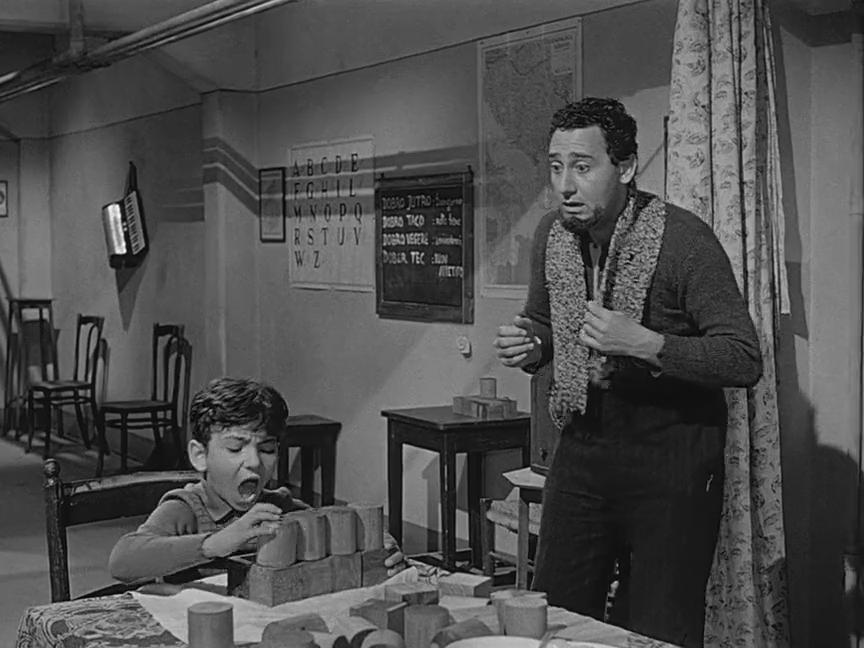Bravissimo, a 1975 film directed by Elio Petri, is a sharp, satirical exploration of fame, ego, and societal expectations, featuring one of Italy’s most iconic actors, Alberto Sordi. Known for his portrayal of both the common man and the political elite with equal precision, Sordi’s performance in Bravissimo stands as a testament to his ability to blend humor with subtle social critique. The film provides a rich landscape for discussing Italy’s obsession with celebrity culture and social image, all while navigating the complexities of human nature and ambition.
Plot Overview:
In Bravissimo, the protagonist, Gianni, is an unremarkable man who, by sheer coincidence, becomes a media sensation. His rise to fame stems from a ridiculous incident where he is mistaken for a talented singer, despite having no real vocal ability. The film explores Gianni’s journey as he is propelled to the top of the entertainment industry. Enjoying the privileges of fame and adoration, even though he is completely unqualified for it. The central theme of the movie revolves around the absurdity of fame, particularly the artificial nature of success built on public perception rather than real talent.
Settings:
Set against the backdrop of 1970s Italy, the film cleverly critiques the burgeoning celebrity culture, something that was increasingly becoming a global obsession. The movie’s settings are representative of this growing media world. From the bustling streets of Rome to the high-end recording studios and extravagant TV studios, Bravissimo shows Italy’s urban and media-centric landscape during a period of rapid modernization.
The contrast between Gianni’s humble beginnings and his later experiences in the luxurious entertainment world is stark. This shift from the everyday mundane to the glamour and extravagance of fame highlights the film’s critique of superficial success and the commodification of people in modern society. The contrast between public and private spaces—working-class settings versus glamorous television sets—also serves as a subtle commentary on class structures and how easily they can be upended by media manipulation.
Alberto Sordi’s Performance:
Alberto Sordi, renowned for his ability to capture both comedic and tragic dimensions of his characters, is at the heart of Bravissimo. His portrayal of Gianni is both humorous and deeply tragic. Sordi’s skill lies in his ability to convey the emptiness and absurdity of fame. Contributing to show how Gianni’s rise to stardom is marked by a dissonance between his personal incompetence and the public’s blind admiration.
Sordi’s Gianni is simultaneously naive and opportunistic, a man who, despite knowing that his fame is undeserved, eagerly accepts the accolades and benefits that come with it. His nuanced performance invites the audience to reflect on how individuals often pursue fame for the validation it brings, even at the cost of personal integrity or authenticity. Sordi’s comedic timing, paired with his ability to navigate Gianni’s internal conflict, makes the film both entertaining and poignant.
Cinematography and Direction:
Directed by Elio Petri, the cinematography of Bravissimo is particularly effective in reinforcing its thematic concerns. Petri’s direction contrasts the superficiality of the entertainment world with the isolation and disconnection Gianni feels from it. The visuals emphasize Gianni’s growing sense of alienation as he becomes more entrenched in the media spectacle that surrounds him. The film’s pacing and shot composition mirror this disconnection. Often showing Gianni amidst large crowds or in gaudy settings, yet always making him seem isolated.
The film uses a combination of sharp cuts and lingering shots to capture the vacuity of the fame that Gianni is swept into. It highlights the absurdity of his success through visual metaphors, such as the over-the-top TV production sets and the lavish surroundings. Which creates contrast with his inability to deliver any real talent.
Themes and Social Commentary:
At its core, Bravissimo is a biting social commentary on the nature of fame, celebrity, and media manipulation. It exposes the way in which society elevates individuals based on appearances, marketing, and public relations, rather than substance or merit. This critique of the entertainment industry and its often superficial judgments resonates with modern audiences. Particularly in an age where media-driven success is more prevalent than ever.
The film also explores the theme of personal identity. As Gianni is consumed by the image of himself that the media constructs for him, he becomes increasingly disconnected from who he truly is. His internal struggle between his unworthiness and the adoration he receives highlights the tragicomic nature of his character.
Bravissimo stands as one of the quintessential Italian films of the 1970s, thanks to its masterful direction, clever social commentary, and Alberto Sordi’s unforgettable performance. It is a film that not only entertains but also makes the audience reflect on the nature of fame and the societal forces that sustain it. The film remains as relevant today as it was upon release, reminding us of the artificial nature of media-driven success and the hollow pursuit of validation from others.
By using humor and satire, Bravissimo captures the absurdities of Italian celebrity culture. In doing so, it offers a timeless critique of human nature, ambition, and the price of fame.
Watch the movie on Movieitaly+
Read more articles over here!






